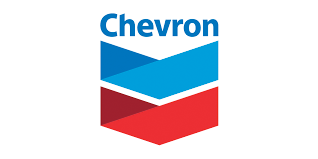-
Investment Practice and Engagement
As the Company is not an operator, we place great importance on our Governance practices. We support responsible development of the oil and gas assets and businesses in which we are invested through several methods. Pre-investment our due diligence policy provides internal assurance, assists in decision-making, and ensures alignment with both internal ESG policies and industry good practice on greenhouse gas (GHG) emissions management. Further detail is provided within the “Governance spotlight – Investment Due Diligence” section of this report.
Post-investment, where we are a joint venture partner we have active participation in relevant operational and technical oversight meetings and budget reviews, we work alongside appropriate technical staff in Operator activities, and conduct six-monthly audits by an Independent Monitoring Group to assess compliance with International Finance Corporation (IFC) Performance Standards.
Africa Oil has voting rights in line with those of other shareholders and seeks to influence via engagement with the operators and investment holding companies. As a small company, neither a justification for voting nor a proxy voting procedure are appropriate; instead, matters are dealt with on a case by case basis through the engagement methods previously described. Operating partners and investment holding companies typically keep the Company informed via monthly and quarterly reporting.
For more information please see our sustainability report.
-
Investment Due Diligence
As a non-operator, we have a responsibility to ensure appropriate due diligence assessment of environmental, health & safety and social performance risks related to potential new investments. Due diligence provides internal assurance, assists in decision-making, and ensures alignment with both internal ESG policies and industry good practice on greenhouse gas (GHG) emissions management. We have therefore developed a due diligence procedure with the purposes of defining the scope of ESG due diligence required for different types of transaction, setting out the basic ESG issues to be addressed during due diligence, ensuring that potential GHG emissions are considered, and defining roles and responsibilities.
We provide more detail to our diligence process in our sustainability report.
-
Approach to Climate Risk
At Africa Oil, while we recognise that oil and gas activities result in impacts to the global environment due to the emission of greenhouse gases, human progress and economic demand drive the world’s growing energy needs and we also recognise that fossils fuels will continue to play an important part in meeting global energy needs for the foreseeable future. Our approach to managing climate change risk can be found in our Greenhouse Gas Emissions Management Policy.
The provision of affordable and ever cleaner energy is essential for tackling poverty and inequality, safeguarding the natural environment and promoting human prosperity. The provision of clean and affordable energy is a key element in meeting the United Nations Sustainable Development Goals. Global action, as set out in the Paris Agreement and the overall move towards other energy sources present the oil industry, and the wider world, with fundamental new challenges. Demand for oil and gas will require continued investment even under aggressive low- carbon scenarios. The challenge is how to meet the world’s demand for energy whilst minimizing impacts to the global environment. We are committed to protecting and sustaining the environment and seek to minimize our impacts in line with the Paris Agreement.
In order to contribute towards the goals of the Paris Agreement, our aim is to ensure that we integrate the monitoring management and reporting of GHG emissions into our activities, strategy and decision-making. Where we are a non-Operator, we aim to work with our Operating Partners to minimise, and where possible eliminate, regular gas flaring in line with the World Bank “Zero Routine Flaring by 2030” initiative. We will look for innovative impact investment solutions to use excess gas that might otherwise have been flared, as an alternative source of clean energy. Where we are an Operator, we will assume directly the responsibilities set out in our Greenhouse Gas Emissions Management Policy.
We have developed a roadmap for tackling climate risk in the current and future investments, considering short- term, medium-term and long-term objectives. This includes incorporating climate into due diligence process for new investments (specific climate questions and shadow carbon pricing as a tool) and aligning with aspects of Taskforce for Climate-related Financial Disclosure (TCFD) including establishing a climate risk process. We are actively exploring opportunities to reduce our emissions footprint per barrel of oil produced and will report on our approach in due course. Detail of his can be found within our sustainability report.

We are committed to protecting and sustaining the environment and seek to minimize our impacts in line with the Paris Agreement.
-
Third Party Operators
Below, we highlight select accomplishments of the operators with whom we are engaged. We provide links to the various online resources, including sustainability reports that are produced and demonstrate our partners’ commitment to sustainable and responsible operating practices.

Chevron
Chevron is “providing affordable, reliable, ever-cleaner energy to improve people’s lives and enable human progress” and details is sustainability activity on its website and through various reports. Chevron has outlined its “key ESG actions” that reflect its values and demonstrate its commitment to responsible operations. It produces a Sustainability Report, which is independently assured, and provides a full ESG data report.

Total
Total is “committed to finding solutions to the challenge of climate change, while also supporting social and economic development around the world by providing energy that is more affordable, more reliable, cleaner and accessible to as many people as possible.” Total provides information on health, safety, environment and societal initiatives. It also focuses upon climate and has produced its “Getting to Net Zero” roadmap in 2020.

Tullow
Tullow “continually reviewing and refining its approach to sustainability, taking on board the primary interests of our investors, host countries and communities, as well as colleagues throughout our business.” It provides ESG information to its investors detailing its approach to environmental management, health and safety, social and governance, and published a sustainability report for 2019.

